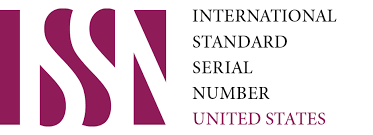Use Of Ethafos Against Endophilic Flies in Conditions of Uzbekistan
DOI:
https://doi.org/10.62480/tjpch.2024.vol30.pp28-36Keywords:
Linguoculture, phrases, phraseological compoundsAbstract
The correlation of phrases with linguoculture in a comparative study is a fascinating area of research within linguistics. Phrases are linguistic units that consist of two or more words whose meaning is different from the literal interpretation of the individual words. These compounds often carry cultural connotations and reflect the values, beliefs, and customs of a particular linguistic community. In a comparative study, researchers can analyze how phraseological compounds vary across different languages and cultures, shedding light on the unique ways in which each culture expresses ideas and concepts. By examining the use of phraseological compounds in various cultural contexts, researchers can gain insights into the underlying values and norms of different societies. Studying the correlation of phrases with linguoculture in a comparative framework can provide valuable insights into the intricate relationship between language and culture, enriching our understanding of both linguistic diversity and cultural identity
References
ABDULLAEV U. Biology of the autumn burner (Stomoxys calcitrans L.) in the conditions of the Tashkent region. Cand. diss., Tashkent, 1999
ABRAROV Z. S., AVANESOV R. Kh., GAIBOV N. Uzbek Soviet Socialist Republic. Ed. "Uzbekistan," 1997: 22-31.
ALEKSEEV A.P. The systemic effect of judfidophos on ixodic ticks - In book: Vet. entomology and acarology. - M., 2003:288.
ALEKSEEV A.P., ABBASOV T. G. Dynamics of accumulation of sulfidophos residues in the body of cattle when processing them against ixodic mites. - In Prince. entomology and acarology - M., 1993:290.
ANDREEV K.P. On measures to combat gnus. "Veterinary," 4, 1984: 63-69
ANDROSOV F. Z., KARAVASHKOVA A. I., LAPIDUS S. S., KHODOVA O. Ya. Fight against flies in the livestock pavilions of the All-Union Agricultural Exhibition. "Veterinary," 5, 1985:72.
ANDREEV K.P. Organization and procedure for disinsection on farms. "Veterinary," 5, 1964: 94-97.
ANDREEV K.P., VRANCHAN Z.Z. Application of DDT aerosol and hexochlorane for fly extermination in livestock premises. "Veterinary," 8, 1988.
BIRYUKOVA N.P. Difos. Results of state pesticide tests by veterinary research institutions in 1974 M., 1995: 28-34.
BONDAREV I.A., ZHOGOV I.F. The effectiveness of cyodrine against indoor flies, autumn roasters and pasture flies. "Vet. entomology and acarology, "M.,2003:156.
BUTYRINA E. S., SMIRNOVA S. N., GVOZDEVA I.V. Comparative effectiveness of insecticidal bait for indoor flies. In book: Theory and practice of disinsection and sterilization. - Collection of scientific works. M., 2003: 58-63.
Vakhidova D.S. Use of biological preparations against endofilnқkh flies, Collection of works of practical and scientific conference Barnaul 2005
D.S. Vakhidova. Blood test of the animals processed by insecticides against экто parasites Barnaul 2006. 16. GADZhEY E. T. Specific structure and ecological features of synanthropic flies and the recommendation about fight against them in different high-rise zones of the Tajik SSR. "Scientific тр. on parasitology", Dushanbe, 2005: 145-146.
GVOZDEVA I. B. Application of a new insecticide trolena-THM-3 for fight against larvae of flies in the city of Tashkent and Yangiyule. "Medical magazine of Uzbekistan", 1., Tashkent, 1999: 79-80.
RUZIMURADOV A. Organization of events against zoofilny flies. "Veterinary science", 1, 20018: 34-36.
BALLEY D. L., LA BRECQUE G. C., MHITTIELD T. L. Insecticides applied as low-volume and conventional sprays to control larvae of the house fly in poultry houses "J. Econ. Entomol.", 63, No. 3, 1990: 891-893.
BALLEY D. L., LA BRECQUE G. C., BISHOP P. M. Residual sprays for the control of house flies Musca domestica vicina Masq. in dairy barns. "Fla Entomol.", 50, No. 3, 2017: 161-163.
BADESCU of C. Some odservations concerting the insecticidel action of thicorbamide and other chemical of house flies in Romania. Wiad. parazytol., 28, I, 20020: 231-235.
OWN of A. Restiance des arthropods des insecticides, Geneva, 2019.
CHRISTENSEN C. N. 1976 Insect control on lactating dairy cows-Univ of Kentucky College of Agric., I, 2019: 1-3.
KEIDING J. Resistance to fenitrotion in Danish house – flies Musca domestica, J. Hug. Epid. Microb. Jmmunol., 20, 2020: 171-185.
Downloads
Published
Issue
Section
License

This work is licensed under a Creative Commons Attribution-NonCommercial 4.0 International License.
User Rights
Under the Creative Commons Attribution-NonCommercial 4.0 International (CC-BY-NC), the author (s) and users are free to share (copy, distribute and transmit the contribution).
Rights of Authors
Authors retain the following rights:
1. Copyright and other proprietary rights relating to the article, such as patent rights,
2. the right to use the substance of the article in future works, including lectures and books,
3. the right to reproduce the article for own purposes, provided the copies are not offered for sale,
4. the right to self-archive the article.












